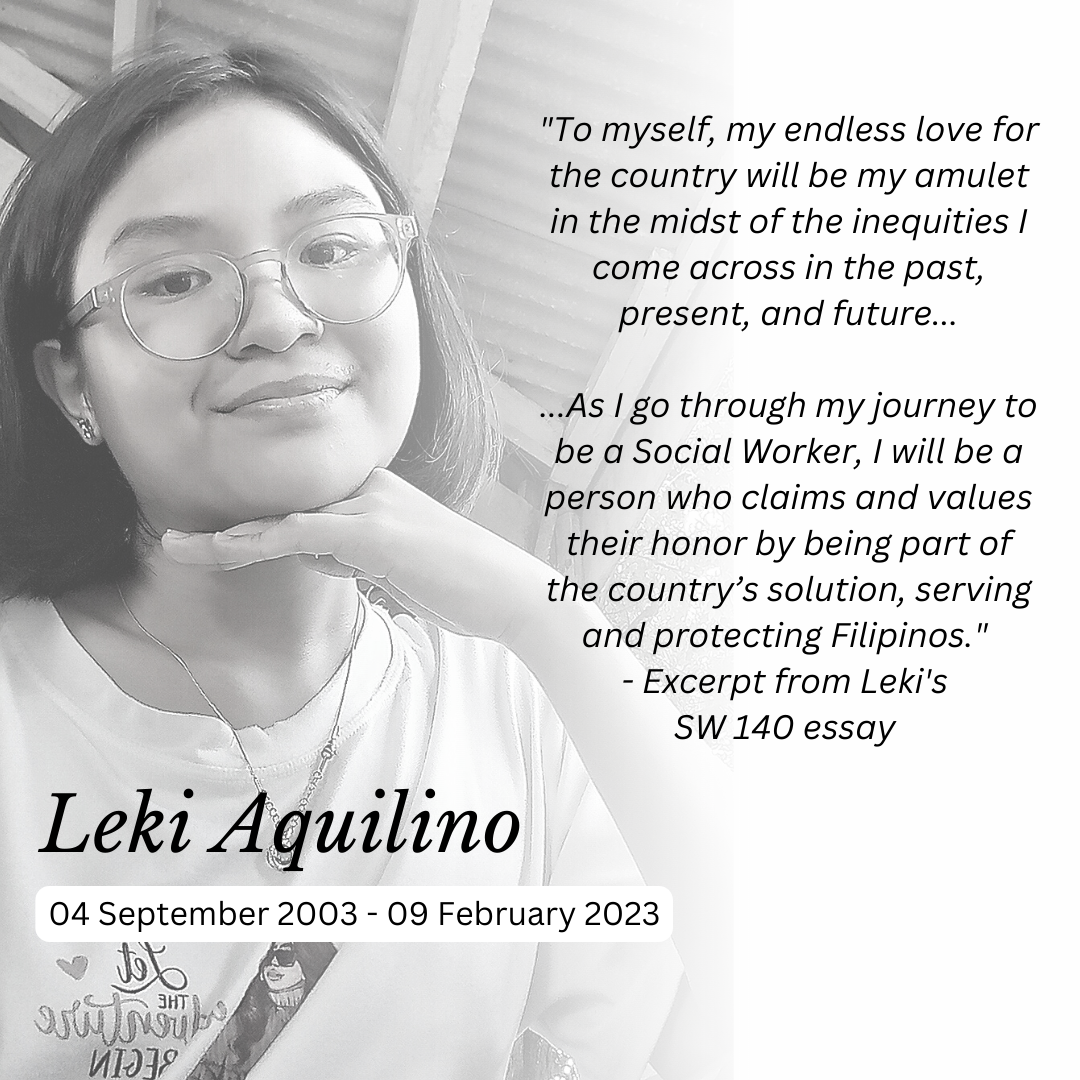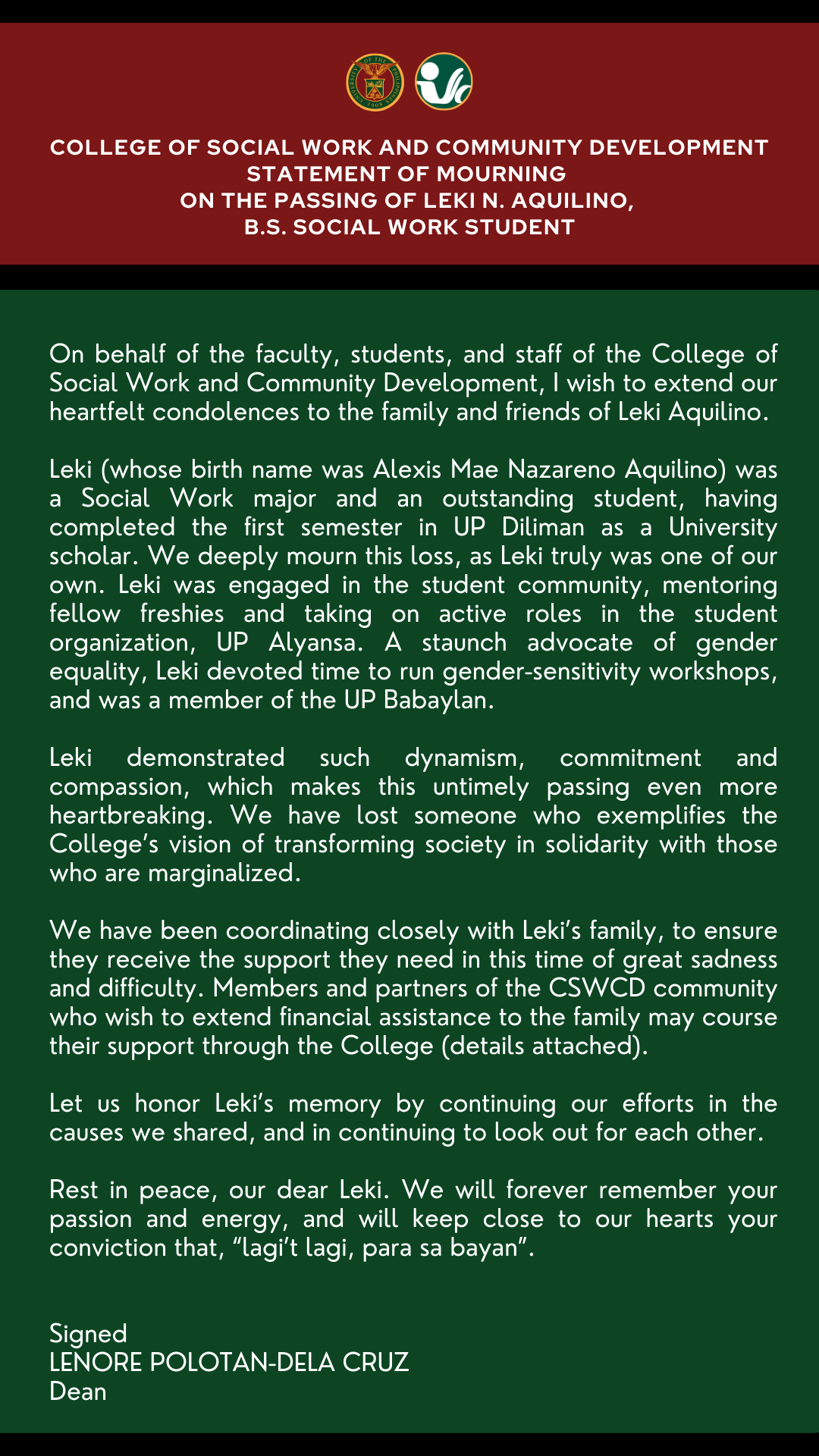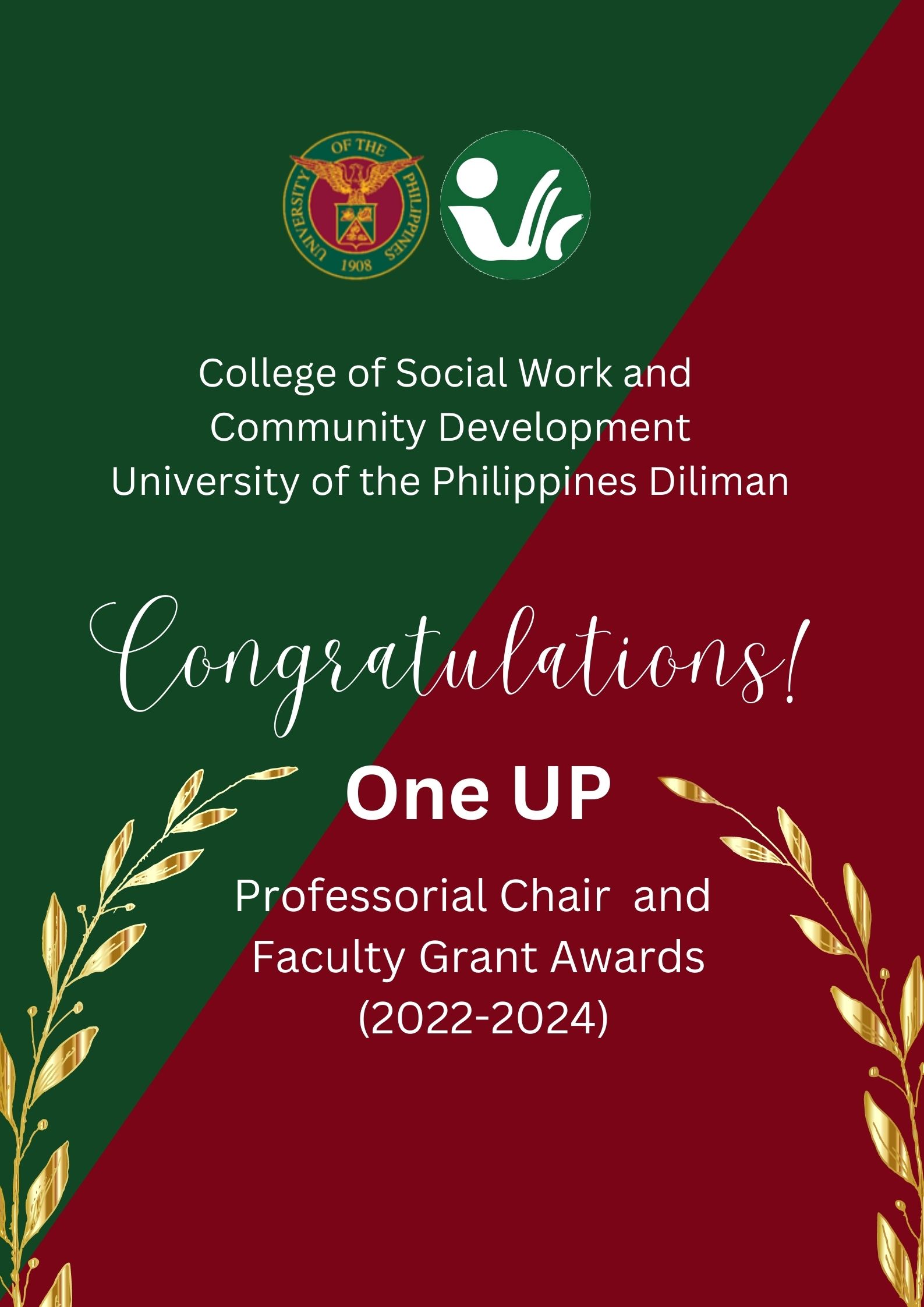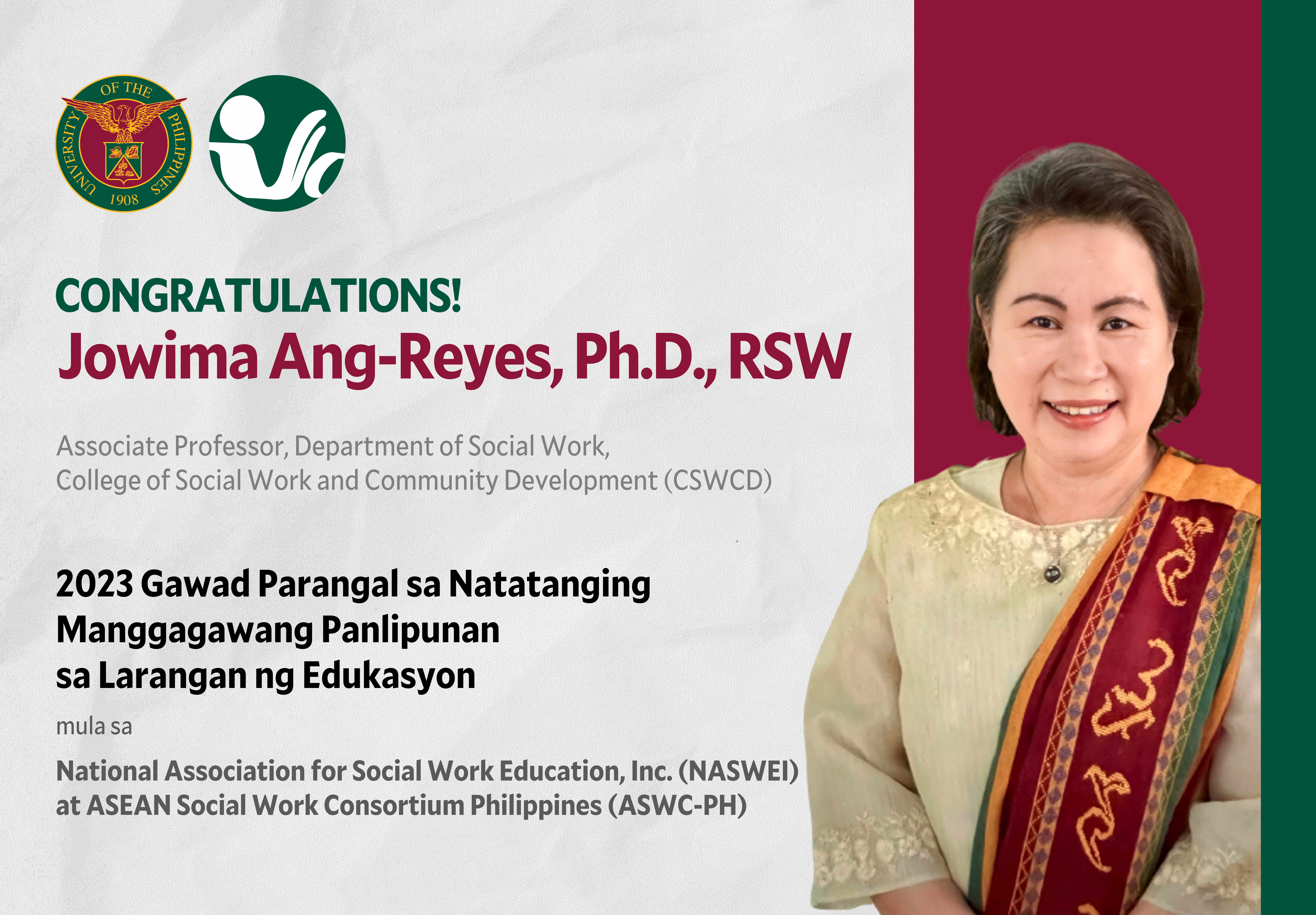
News
2023 CSWCD Student Council
Heads up!
With a voter turnout of 52.24% (327 votes/626 voters), the CSWCD College Student Electoral Board (CESB) declares a successful conduct of the 2023 Student Elections. The CSEB further endorses the winning candidates for the following positions: Chairperson, Vice Chairperson for Internal Affairs, Vice Chairperson for External Affairs, BSCD Representative, and Graduate Representative.
The BSSW Representative position will be declared vacant since the candidate received lesser votes compared to the votes cast for abstain. The position as well as other vacant positions namely those of the Secretary General and Finance Officer will be filled up following the CSWCD SC Constitution and By Laws.
The CSEB extends its heartfelt gratitude to the whole CSWCD community for ensuring the successful conduct of the Student Elections 2023!
Download now! PJSD Vol. 15 2022 Transformative Social Work and Social Development: Responding to the Pandemic, Disasters, and Human Rights issues
Download now! PJSD Vol. 15 2022 Transformative Social Work and Social Development: Responding to the Pandemic, Disasters, and Human Rights issues
[CSWCD Update] CSWCD meets with DSWD (March 15, 2023)
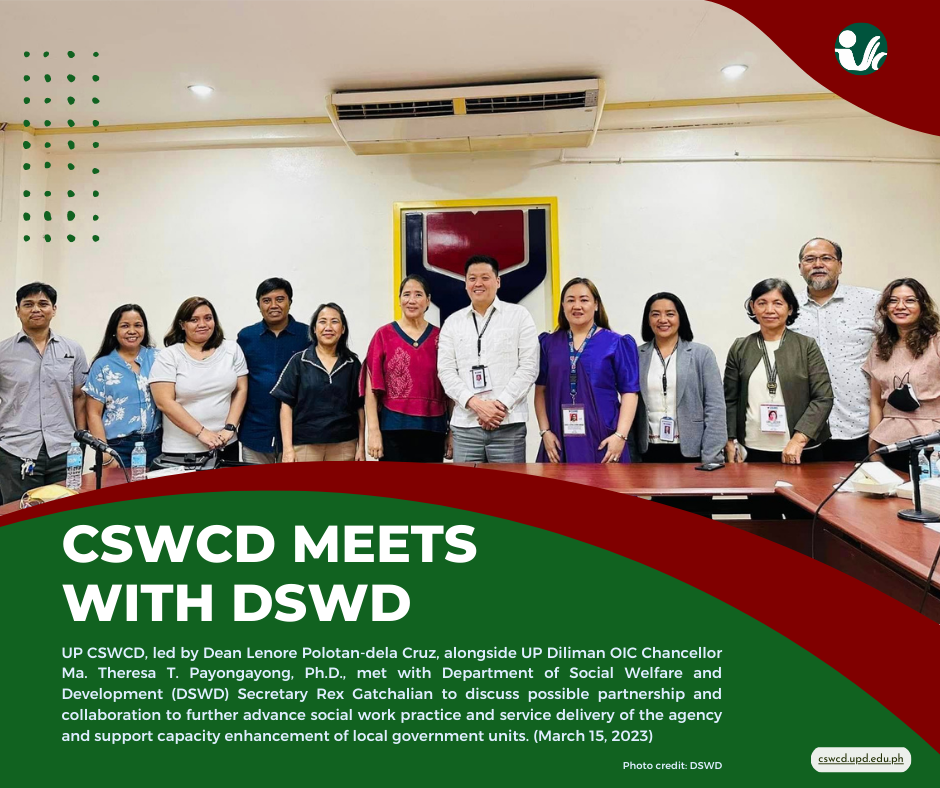 CSWCD meets DSWD
CSWCD meets DSWDStatement of the Social Work Action Network Philippines: “ASA KA PA? and the BUFFER ZONE”
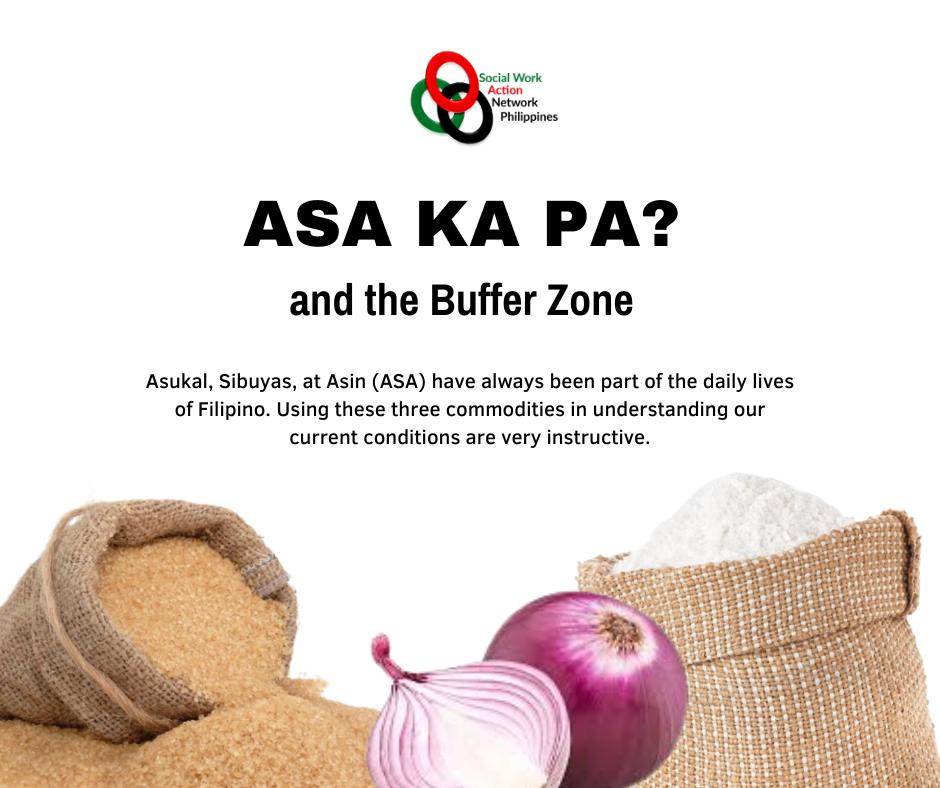
ASA KA PA? and the BUFFER ZONE
Asukal, Sibuyas, at Asin (ASA) have always been part of the daily lives of Filipinos. Using these three commodities in understanding our current conditions are very instructive.
Last week, the Sugar Regulatory Commission has proposed to import 450,000 metric tons (MT) of sugar this year following the instruction of President Marcos to bring down retail prices of the sweetener (Rivera, 2023). The proposed volume will cover a two-month buffer stock of sugar at the end of the milling season (Rivera, 2023). Last year’s plan to import 200,000 tons of sugar will make life less sweeter to some 66,000 sugar workers who will be directly displaced from their jobs and about 500,000 who derive indirect employment. If each worker has family of five the life would be less sweeter for about 3 million Filipinos (Mendoza, 2022).
Onions and salt have always been part of the meals of the Filipinos, “a staple in Filipino cuisine.” For culinary enthusiasts, both can make or break a dish. Last January 10, 2023, the president approved the importation of 21,060 MT and expected to arrive later this month or the first week of February, 2023 (CNN, 2023). This planned importation “to soothe a brutally high inflation and growing consumer woes could end up hurting onion farmers in the country (Royandoyan, 2023).
Onion farmers have been driven to despair, with some taking their own lives, after bearing the brunt of protracted losses, mounting debts, unscrupulous traders who have made their crops out of consumers’ reach, and the deluge of smuggled onions in the market (Lagare et. al., 2023).
The onion has become symbol of inflation (Palatino, 2023). Funny memes depicting onion as a luxury gift and symbol of affluence were widely shared on social media. The humor hides the suffering of poor families who are barely surviving amid the rising prices of basic goods and the absence of a substantial wage hike (Palatino, 2023).
We imported 628,500 MT or equivalent to 92 percent of the country’s salt requirements in 2019 and 2020, since local production was unable to meet demand (CNN Philippines Staff, 2022). According to an expert, the country has only 2,000 hectares remaining salt farm beds. This is very ironic since the Philippines is an archipelagic country.
As we all know, the structural driver for these phenomena is no other than the neoliberal ‘development’ paradigm that has been fully implemented since the 1970s. Consequently, heavy dependence on importations breeds cartels and syndicates that hoard the imported commodities, created artificial shortage of supply and raised prices. This is, of course is not possible without the connivance of well-positioned government officials.
The anti-Filipino character of this ‘development’ paradigm is exacerbated the extreme callousness of the current regime to the plight of the people. Earlier in August, 2022, Diokno said that “the giving out of ayuda in relation to the pandemic is already a waste of public funds.” According to Sonny Africa, Executive Director of IBON, “the high of PhP 233.7 billion worth of cash support in 2020 fell to PhP 9.5 billion in 2022and is down to a trifling PhP 10.5 million this year…. Regular emergency assistance programs have also been cut and are down from PhP 97.4 billion in 2022 to PhP 90 billion this year or a PhP 7.5 billion budget cut. This included billions slashed from the budgets for families in difficult circumstances (Department of Social Welfare and Development), displaced workers (Department of Labor and Employment), and overseas workers (Overseas Workers Welfare Administration. The Marcos Jr administration even cut the budgets of the Pantawid Pamilyang Pilipino Program (4PS) by PhP 5.1 billion and of the KALAHI_CIDSS community development program by PhP 2.8 billion.”
These facts are either deliberately hidden from the public coupled if not for the advocates and people’s organizations that expose them. There is also the barrage of the disinformation about the GDP growth redounding to the interests of the people. But the more insidious tactic is churning of lies that the government still care for the people. This is the buffer zone.
We social workers have been charged together with other disciplines and professions as part of the buffer zone. For Paul Kivel, “people in the ruling class have always wanted to prevent people at the bottom of the pyramid from organizing for power in order to maintain the power, control, and, most importantly, wealth that they have accumulated. At the same time, they have generally wanted to avoid directly managing people on the bottom of the pyramid. To maintain this separation and to prevent themselves from becoming the objects of people’s anger, they have used legal, educational, and professional systems to create a network of occupations, careers, and professions to deal directly with the rest of the population. This buffer zone comprises all occupations that carry out the agenda of the ruling class without requiring ruling class presence or visibility.”
Under this current ‘dark time”, the unmasking of the buffer zone is propelled by the sharpening of the contradiction between those who professed to govern and those at the bottom. But the complete unmasking and bursting of the buffer zone does not come naturally. Repression does not automatically lead to resistance. The pricking and the elimination of the buffer zone starts with the raising of our political consciousness and together with the people understand our current dark period, deepen our commitment, and eventually taking the resolve to act collectively.
One of these is exposing and condemning the mainstream social work practice as part of the buffer zone that has long time ago lost its relevance.
The need for transformative social work has long been warranted. Let us help each other to realize it.
Another Social Work is Possible!
______________
CNN Philippines Staff (2022). 96% pf PH salt might be imported by 2030, group warns. https://www.cnnphilippines.com/…/PhilASIN-salt-import…
CNN Philippines Staff (2023). PH to import 21,060 MT of onions, fewer than earlier eyed. https://www.cnnphilippines.com/…/PH-to-import-21-060…
Lagare, J.B., Ramos, M., & Gascon, M. (2023). Loses driving onion farmers to desperation.
https://newsinfo.inquirer.net/…/losses-driving-onion…
Mendoza, T. (2022). Importing 200,000 tons of sugar: Making life bitter for 3M Filipinos. https://opinion.inquirer.net/…/importing-200000-tons-of…
Palatino, M. (2023). How the Onion Became the Symbol of Inflation in the Philippines. https://thediplomat.com/…/how-the-onion-became-the…/
Rivera, D. (2023). 450,000 MT of sugar eyed for importation. https://www.philstar.com/…/450000-mt-sugar-eyed…
Royandoyan, R. (2023). Import plan to hurt local onion farmers-analyst.
https://www.philstar.com/…/import-plan-hurt-local-onion…
SOCIAL WORK ACTION NETWORK – PHILIPPINES
January 30, 2023

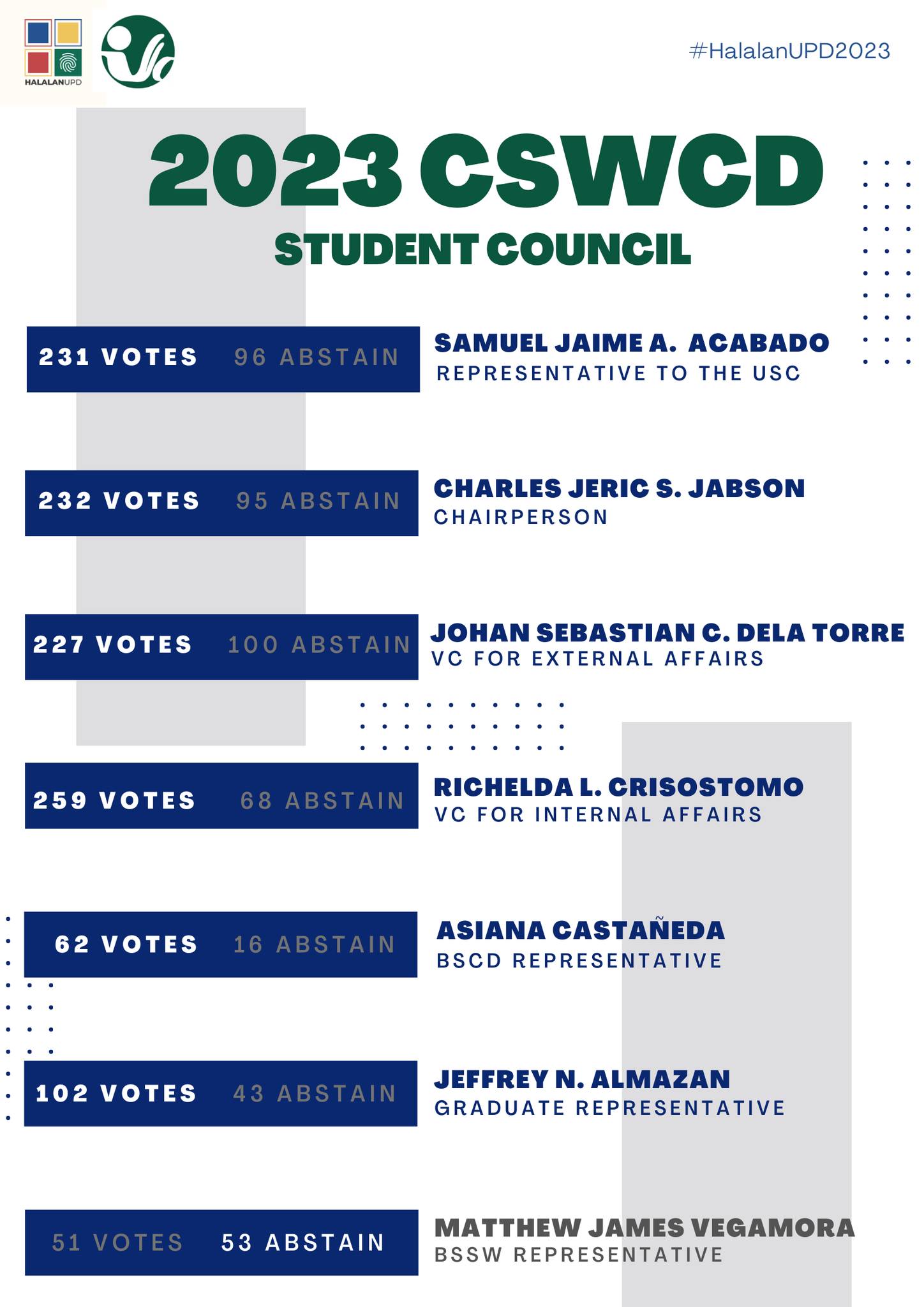
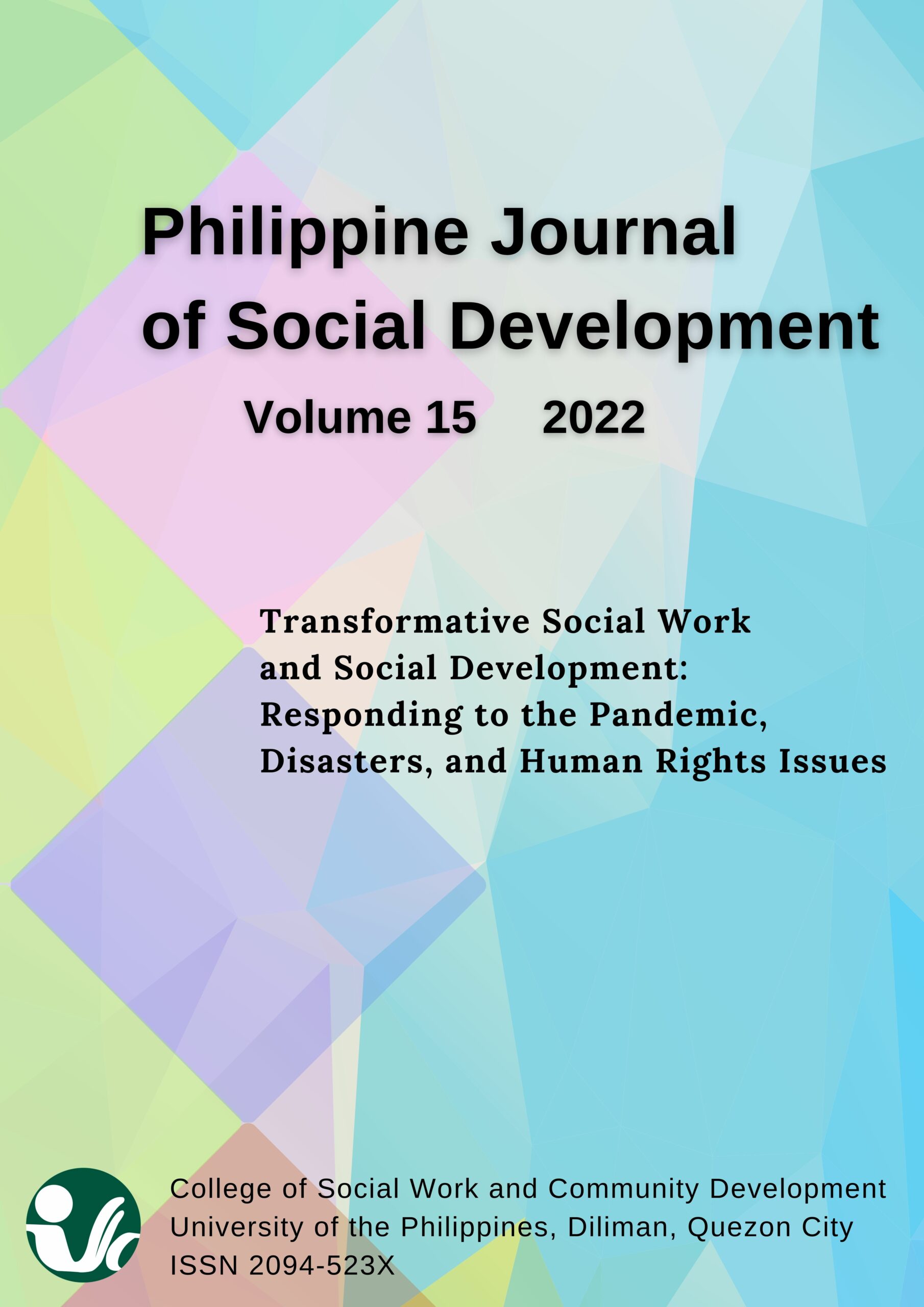
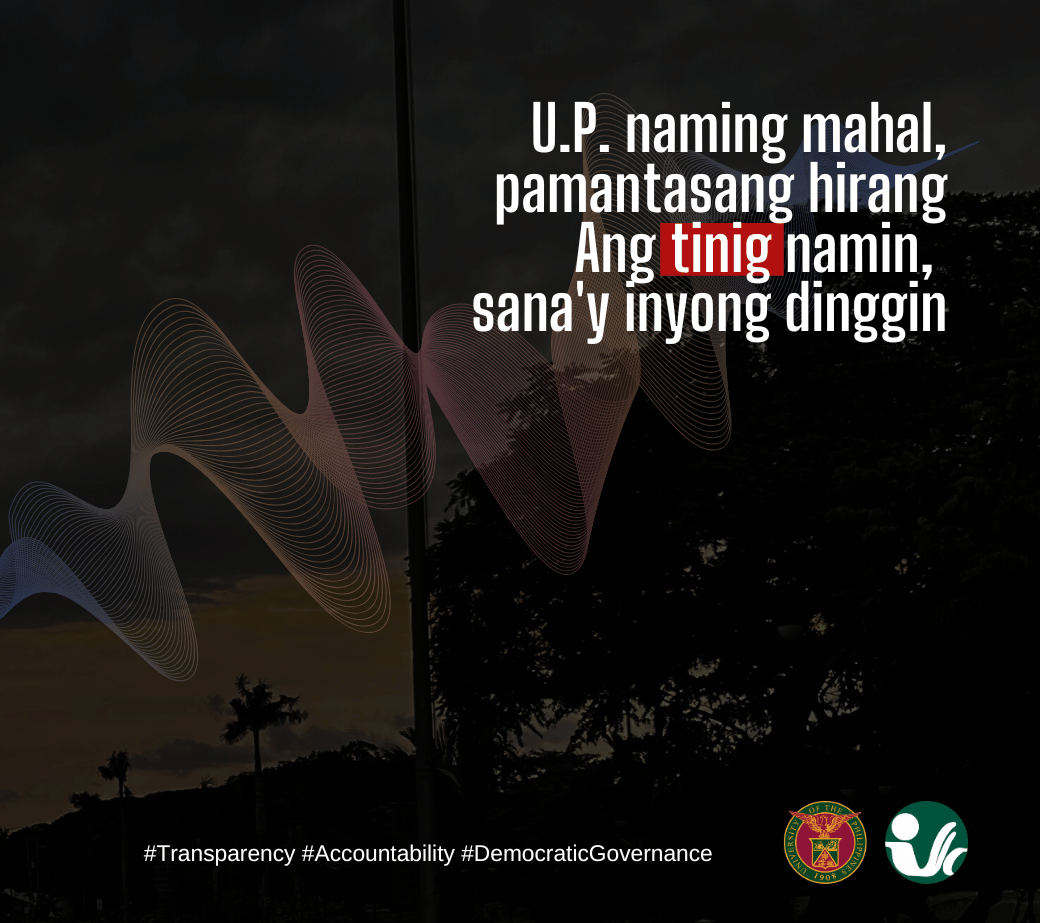
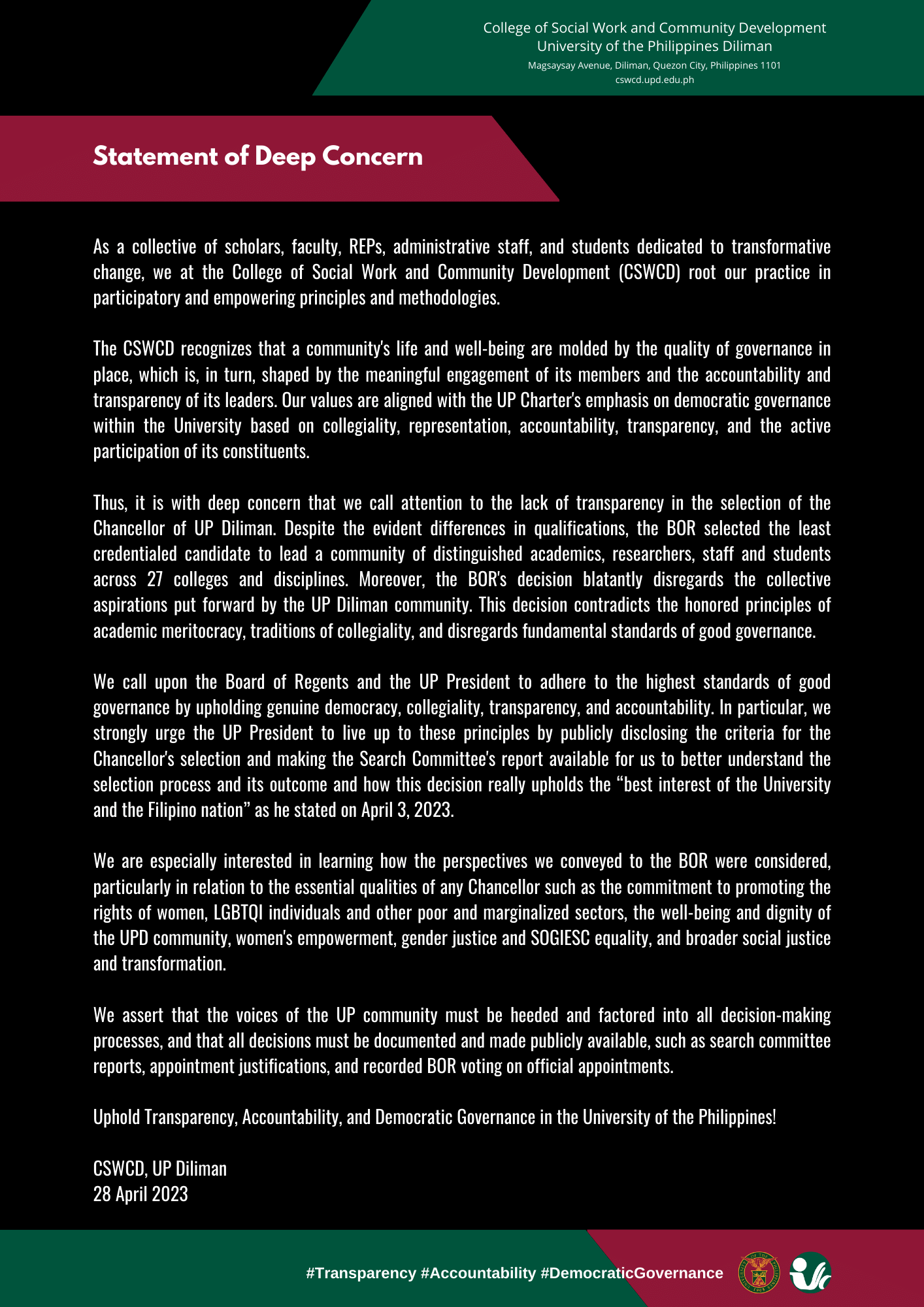
![[CSWCD Update] CSWCD GAD Committee holds Safe Spaces and Anti-Sexual Harrassment Forum](https://cswcd.upd.edu.ph/wp-content/uploads/2023/03/GAD-Comm-Slay-Kween-Forum-Update.png)
![[CSWCD Update] REDO hosts forum on Bangsamoro Women and their struggle for self-determination](https://cswcd.upd.edu.ph/wp-content/uploads/2023/03/Suara-Babai-Forum-Update.png)
